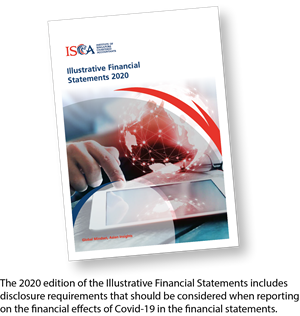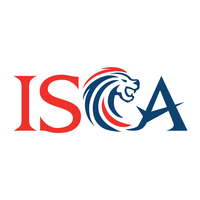DIVING MANUALS


While the aquatic realms offer abundant opportunities for exploration and adventure, for an underwater expedition to be successfully and safely executed, divers need to be well-prepared and fully trained on the standards and procedures for conducting diving operations. This is where diving manuals, which provide standards and guidance on safe diving practices, come in useful. Divers refer to these manuals so that they can adopt best practices in carrying out diving operations and handling of diving equipment.

Similarly, accountancy professionals turn to technical guidance to deal with topical issues and keep up to date on the latest standards and developments. As the national accountancy body, ISCA continues to promote technical excellence by supporting the profession through our technical guidance and knowledge resources on matters related to financial reporting, auditing and assurance, sustainability reporting as well as ethics. These technical guidance and knowledge resources facilitate the implementation and application of financial reporting, auditing and assurance as well as ethics standards, and help entities on their sustainability journey.
Accounting guidance on cryptoassets – from a holder’s perspective
The use of cryptoassets has grown more complex and entities that transact in cryptoassets will need to ensure that the related accounting and disclosures in the financial statements are appropriate and adequate to meet the informational needs of stakeholders. However, cryptoassets are not explicitly within the scope of any existing accounting standard. To fill this gap, ISCA issued Financial Reporting Guidance (FRG) 2 in March 2020, to provide guidance on the most relevant accounting standard(s) which could be used in the accounting of the various categories of cryptoassets (namely, cryptocurrencies, utility tokens, asset tokens and security tokens). Cognizant that there may be cryptoassets which have terms and conditions and/or characteristics that may not fit the general definitions of the categories of cryptoassets covered in FRG 2, FRG 2 highlighted the importance of understanding the facts and circumstances of each individual case and the use of judgement with emphasis placed on the substance of the transaction over its form in determining the appropriate accounting of cryptoassets.
ISCA Financial Statements Review Committee (FSRC) Live Webinar 2020
The Institute continued its collaboration with ACRA on its Financial Reporting Surveillance Programme (FRSP), now in its sixth year. The FRSP guides companies to meet the requirements in the accounting standards, which in turn provides investors with reliable and meaningful financial statements for decision-making.
In September 2020, ISCA in collaboration with ACRA, organised a webinar to share findings from the third FRSP report issued in July 2020 and also observations from FSRC. During the webinar, participants also learnt about common pitfalls in valuations and how to identify red flags in financial statements.
Adoption of Restructured Code and Inducements Provisions in Singapore
ISCA revised its Ethics Pronouncement (EP) 100 Code of Professional Conduct and Ethics in August 2020 to adopt the final pronouncements relating to the Restructured Code and Revisions to the Code Pertaining to the Offering and Accepting of Inducements issued by the IESBA.
New additions include an enhanced conceptual framework, more robust safeguards provisions to address threats to fundamental principles, strengthened provisions pertaining to the offering or accepting of inducements and application guidance on professional judgement and professional scepticism. The revised code is effective as of 1 March 2021.
EP 100 IG 4 – Clarification on Financial Institutions Considered as Public Interest Entities
ISCA issued EP 100 Implementation Guidance (IG) 4 – Clarification on Financial Institutions Considered as Public Interest Entities on 14 October 2020 to clarify the scope of entities that falls within the definition of financial institutions in EP 100 (Revised on 14 August 2020). In EP 100 (Revised on 14 August 2020), the definition of public interest entities (PIEs) includes all listed entities, entities in the process of issuing debt or equity instruments for trading on Singapore Exchange, financial institutions, large charities and large institutions of a public character. Professional firms auditing PIEs are subject to higher independence requirements, such as stricter rotation requirements and prohibition from providing certain non-assurance services, to ensure a high level of audit quality and integrity of the audited financial statements.
ISCA provided views to several consultation papers issued by international standard-setters such as the IASB, IAASB and IESBA as well as to the following public consultations held by our local regulators.
SGX RegCo on Enhancements to Regulatory Regime

As part of the enhancements, SGX RegCo also added Listing Rule 705(3A) which requires issuers reporting under SFRS(I) to apply SFRS(I) 1-34 Interim Financial Reporting in their interim financial statements. This provides a good framework for comprehensive disclosures and enhances comparability of issuers’ interim financial statements on an international level. SGX RegCo also highlighted that ISCA would be issuing a new technical guidance to aid issuers on the compliance with the new Listing Rule 705(3A). The said technical guidance, Exposure Draft Financial Reporting Guidance 3 (ED FRC) was issued in February 2021 for public consultation.
ACRA’s Proposed Amendments to the Companies Act
ACRA conducted a public consultation in July 2020 on proposed amendments to the Companies Act. ISCA supported the proposal for micro non-publicly accountable companies to be allowed to prepare reduced or simplified financial statements to reduce their compliance burden. We provided feedback that there is a need for a separate financial reporting framework for this proposal to be executed effectively. We shared ISCA’s Micro Accounting Model, a self-contained financial reporting framework, developed to facilitate micro entities’ preparation of reliable financial statements using accounting principles consistent with the IFRSs.
SGX RegCo on Enhancements to Enforcement and Whistleblowing Frameworks
Whistleblowing policies and practices are critical elements of issuers’ internal control system and corporate governance. As such, ISCA agreed with SGX RegCo that issuers should disclose how they have complied with best practices on whistleblowing. We highlighted the need for more guidance surrounding the design of the whistleblower mechanism to ensure effectiveness.
ISCA proposed two additional best practices on channels for whistleblower to report anonymously and on disclosure of issuers' commitment to timely investigations and more transparent reporting. With regard to anonymous reporting, we shared that current technology allows for both anonymous reporting and two-way communication. Hence SGX RegCo could consider requiring issuers to provide an option for whistleblower to report anonymously as long as two-way communication is enabled for the whistleblower to provide further information for investigation.
ISCA Sustainability Reporting E-Learn – Relevance of Sustainability Reporting to the Accountant
As sustainability considerations grow in prominence globally, ISCA developed a Sustainability Reporting E-Learn, with the support of its Corporate Reporting Committee, to highlight the relevance of sustainability reporting to the accountant.
The E-Learn provides an introduction to sustainability and sustainability reporting and their importance to organisations. It provides insights into how sustainability is relevant to the accountant’s role, including the Chief Financial Officer’s responsibility as steward of capital, by illustrating that sustainability has financial consequences despite being non-financial in nature.
Proposed Non-authoritative Guidance on Extended External Reporting (EER) Assurance
The IAASB issued a Consultation Paper for non-authoritative guidance to address the challenges that practitioners face in applying ISAE 3000 (Revised) in EER assurance engagements. EER encapsulates various forms of reporting, including sustainability reporting.

Since qualitative information could be vague or inherently subjective, we also highlighted that there are practical challenges in determining subject matter information in an EER report that are suitable for assurance. We suggested the inclusion of further guidance, with illustrative examples as appropriate.
Proposed Sustainability Standards Board (SSB) by the IFRS Foundation
The IFRS Foundation published a Consultation Paper (CP) that included a proposed SSB to improve the consistency and comparability in sustainability reporting. ISCA has responded to the CP in support of this initiative.
We emphasised the need for a set of universally adopted standards to avoid further fragmentation in sustainability reporting approaches. To achieve this, we recommended a participatory approach to the standard setting process by engaging all major regions like the ASEAN to ensure that key stakeholder needs are considered.
We also highlighted the need for any newly developed sustainability reporting standards to go beyond climate-related disclosures and address other environmental, social and governance concerns.
ISCA Audit Manuals
The ISCA Audit Manual for Standalone Entities (ISCA AMSE), first issued in October 2016 and updated annually, helps audit professionals understand the requirements of Singapore Standards on Auditing and apply them during the audit process. Developed to meet the needs of SMPs in Singapore, the audit programmes and working paper templates aim to improve efficiency and effectiveness of audits.
The ISCA Audit Manual for Group Entities (ISCA AMGE), an illustrative guide to assist audit professionals in carrying out group audits, was first issued in October 2018. It is intended to help audit professionals understand and effectively apply SSA 600 Special Considerations — Audits of Group Financial Statements (Including the Work of Component Auditors) in group audits.
Illustrative Financial Statements

IFS 2020, which includes disclosure requirements that should be considered when reporting on the financial effects of Covid-19 in financial statements, was issued in January 2021.

/infocomm/istock-1065240778-c.jpg?sfvrsn=50a9b558_2)
/audit-assurance/istock-1133945516-c.jpg?sfvrsn=d158128a_2)
/courses/istock-1222725146-c1.jpg?sfvrsn=339e8e96_2)
/leadership-personal-development/istock-1049824998-c.jpg?sfvrsn=3865afcc_12)

.jpg?sfvrsn=d4038e84_0)

/courses/istock-1140691163-c.jpg?sfvrsn=24ccc519_2)
/audit-assurance/istock-1169206203-c.jpg?sfvrsn=1d6f9b25_2)

/business-management-global-connection/istock-1167579720-c.jpg?sfvrsn=ff93f9a5_2)

/professionals/istock-845530100-c.jpg?sfvrsn=46efdedd_2)





/legal-secretarial/istock-866706340-c.jpg?sfvrsn=d7f57b8c_2)